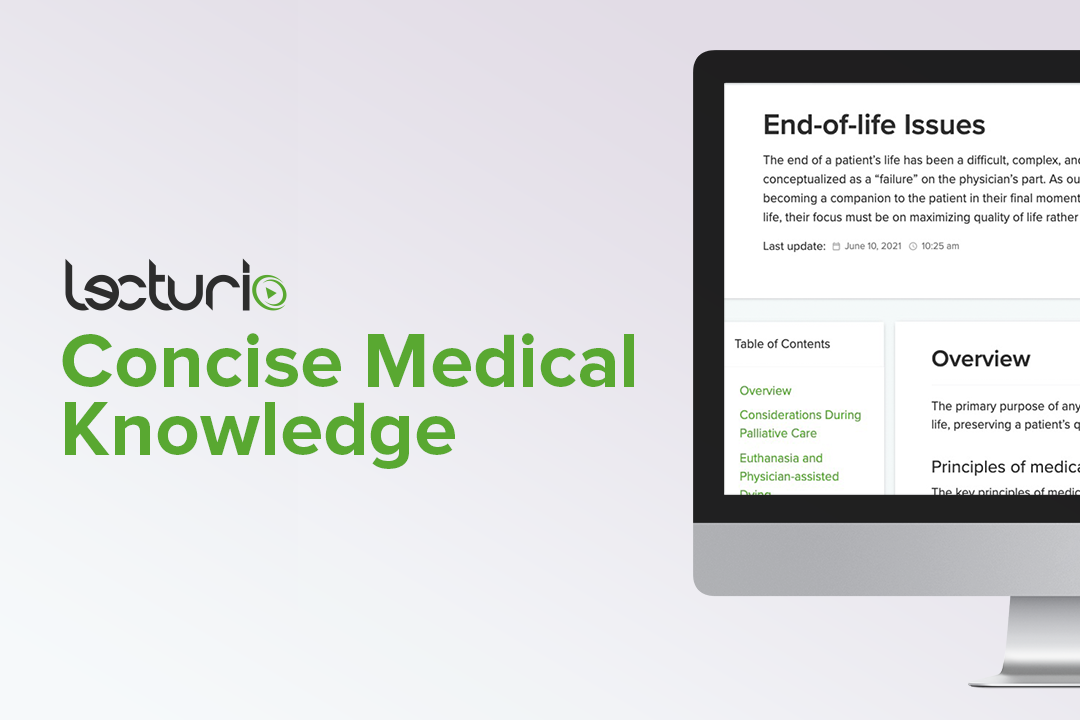Playlist
Show Playlist
Hide Playlist
Determining the Clinician's Accountability
-
Slides Determining the Clinician's Accountability.pdf
-
Download Lecture Overview
00:01 Another thing that, especially when we're thinking about the physician assistants, or clinician assistants, in this process, is at least taking a step back and thinking about, is there any way that the physician or clinician is accountable? Or are they part of the causal chain that leads to this other person's actions? So when we think about culpability, in general, I'm just going to sort of take a step back and think about sort of the philosophy or ethics of this, when we think about culpability, there are two necessary conditions for when a person might be held culpable for another person's actions. 00:40 So first of all, the moral agent has to have the ability to intervene or prevent the action by the other person. 00:47 And second, the moral agent has to be bound by some obligation to prevent the actions. 00:53 So we know that this other person is going to perform an action, we think it might be a wrong action, do we have the ability to either intervene or prevent them from doing it? And are we under some obligation to try to prevent them from falling through on that action. 01:11 So that leads to this issue of, are we complicit in the actions of another person? So complicity can be judged on a spectrum. 01:19 So it may be, you know, as you know, on the lower end of the spectrum, just a moral taints, you know, some blemish on your reputation, you could have done more, but you didn't, or it could be all the way to, on the other end of the spectrum, blame worthiness, you're actually being held liable, that you were part of the causal chain that led to this wrong action by the other person. 01:42 So let me have you think through these questions and scenarios, and you, you figure out for yourself, on what level of participation would be complicit? And what kind of participation would avoid complicity in another person's actions? So when we're thinking about, you know, participation, as you know, whether or not you're going to be complicit, is discussing with another person, their plan, their action, does that make you complicit? If you're assessing the other person's intentions about performing that action, does that make you complicit? If you know that the person is going to perform the action and you sort of acquiesce? Well, this is your decision. 02:25 Does that make you in any way complicit with their action? If you go a step further, and try to evaluate their means or their capability of following through on the action, so you're a little more involved in the decision making process of the other person. 02:41 What level of complicity is that? If you are there, present, you know, remain when they perform the action, is that also going to be complicit. 02:52 If you actually facilitate the actions, so let's take the example of you know, physician assisted suicide. 02:58 So handing them the cocktail of the lethal medication, facilitating the action so that they can then drink it? Is that complicit in their action? Or actually, you know, putting the strap in their mouth and having them swallow it, co-performing the action with them? Does that make you complicit in their action? Now let's take the opposite of what kinds of participation would avoid complicity. 03:26 So what if you command the other not to act? You know, to you avoid being complicit with their action. 03:33 If you counsel them and say, I really don't think you should act, you should perform this action is that avoiding any kind of complicity in what they do. 03:44 If you consent to the other person not acting, say, great, you're not going to perform the action, you were thinking about it. 03:51 You decide not to do it, I consent to you not performing it. 03:56 Is encouragement to dissuade, so actually, you know, trying to use arguments to say, this is wrong for you, because of X, Y, or Z. 04:04 Is that a sign that you are avoiding complicity in their action? What if you actually threaten them? To try to dissuade them? Maybe that's a different moral calculus, but that might also help to avoid complicity. 04:20 And then lastly, what if you know they're trying to perform the action, you actually interfere with them? So they can't perform the action? Does that help you avoid complicity? So again, challenging questions for you to think about both your involvement in the actions of another person, and what might avoid complicity.
About the Lecture
The lecture Determining the Clinician's Accountability by Mark Hughes, MD, MA is from the course Ethical Considerations in Palliative Care.
Included Quiz Questions
What are the two requirements for culpability?
- Ability to intervene or prevent the action
- Bound by obligation to prevent the action
- Interest in preventing the action
- Bound to help the person
- Desire to intervene
What is true about complicity?
- It is judged on a spectrum.
- It always makes one blameworthy.
- It only causes moral taint.
- Complicity must always involve a discussion with others.
- Complicity requires presence during the action.
Customer reviews
5,0 of 5 stars
| 5 Stars |
|
5 |
| 4 Stars |
|
0 |
| 3 Stars |
|
0 |
| 2 Stars |
|
0 |
| 1 Star |
|
0 |




